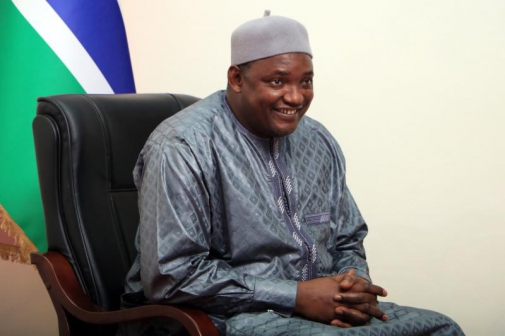×
The Standard e-Paper
Smart Minds Choose Us

Six months ago, businessman and political novice Adama Barrow took power in Africa’s smallest mainland country after delivering a stunning defeat against ex-leader Yahya Jammeh, who had ruled brutally for 22 years.
When Mr Barrow finally took power in The Gambia in late January after a prolonged political crisis, the euphoria soon turned to grim recognition that Mr Jammeh had more or less cleaned out the nation’s coffers before leaving for exile in Equatorial Guinea, he tells AFP in an interview.